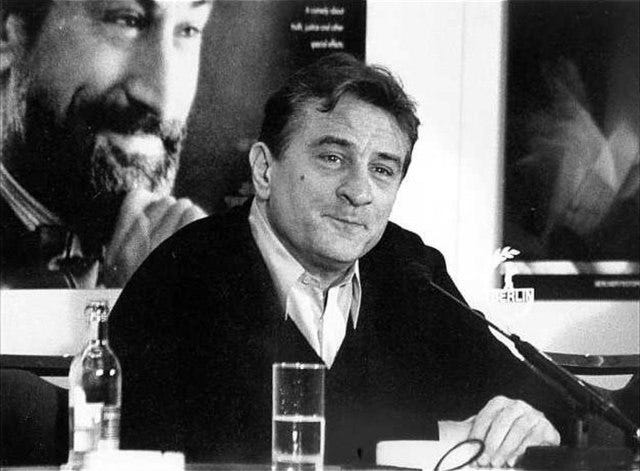
“What if war was just a story?”
That’s the question Wag the Dog flings at your face with a smirk and a cigar.
Directed by Baltimore’s own Barry Levinson and released in 1997, this film plays less like satire and more like scripture for anyone trying to decode the post-truth haze we now stumble through. Positioned alongside the rising embers of the Monica Lewinsky scandal, Wag the Dog dares to tell the truth by telling a lie: what if the president, caught in a sex scandal involving an underage girl, simply hired Hollywood to produce a fake war?
It’s not just distracting, but directing the American psyche.
Enter Robert De Niro as Conrad Brean, the political fixer who wears his cynicism like a tailored suit, and Dustin Hoffman as Stanley Motss, the megalomaniac producer whose dream isn’t power but credit.
“This is nothing,” he says flippantly throughout the film as hijinks commence.
Together, they launch a media campaign centered on a war in Albania, complete with patriotic ballads, shaky cam refugee footage, and a fake POW, but actual sex criminal, played by Woody Harrelson.
Their mission?
Wrap the American public in a flag big enough to cover scandal…and it works.
Of course it works.
The film is a comedy and horror film, but also a documentary shot a decade too early.
What hit me hardest while watching wasn’t just how prescient the film is but how resigned it feels. The script is sharp, the dialogue is hilarious, and the satire is pointed. But the more profound message is that by 1997, Americans were already spiritually cooked. The Cold War was over, and cable news was ascendant. Trust in institutions had curdled into irony, and a generation raised on “Morning in America” and “The Great Society” had begun trading sincerity for sarcasm.
Wag the Dog wasn’t warning of a future; it was reflecting a now that hadn’t been fully noticed yet.
The film belongs to that strange late-90s canon of postmodern American confessionals where politics, performance, and media converge into a grotesque blur. It drops not-so-subtle nods to real-world manipulation: the fake tearjerker refugee video echoes the “Nayirah” testimony from the Gulf War, where a diplomat’s daughter posed as a nurse claiming Iraqi soldiers were pulling babies from incubators.
That, too, was a story, and that, too, worked:
In that context, Wag the Dog feels like a creative prequel to the era of Trump, QAnon, and meme-driven nihilism. Except now, the difference is nobody has to hire Hollywood to spin the narrative, the audience does it themselves, every day, online, for free. The dream machine outsourced itself to the comment section.
And that, maybe, is the most prophetic part of the film. It’s not just about a fake war but a real psychic war being waged on meaning itself. When De Niro’s Brean stages the return of the phony soldier who is a criminal, there’s a moment of awe and a national sigh of sentimental belief. But today, that awe is gone, because we believe nothing, suspect everything, and scroll through it all with popcorn in hand.
So, yes, Wag the Dog is both hilarious and haunting. A film made in a time when the American public still wanted to believe someone was in control, even if that someone was a liar.
But now?
Many are positive the liars are in charge, and half the country cheers them on because at least they admit they’re lying.
In the final scene, Hoffman’s Motss, proud of his perfect narrative, prepares to go public with what he feels is the magnum opus of his theatrical career precisely because it feels so real. But De Niro’s fixer doesn’t let him. The man who gave America its war is disappeared, and the credits roll as somewhere in Albania, a real war begins.
You can almost hear the studio executive saying, “This is nothing.”









My favorites
https://www.youtube.com/watch?v=bMnR3A_CwpE
https://www.youtube.com/watch?v=2lK-26i68CI
https://www.youtube.com/watch?v=_cwNhe0H720
https://www.youtube.com/watch?v=bE3e8ZXqGKE